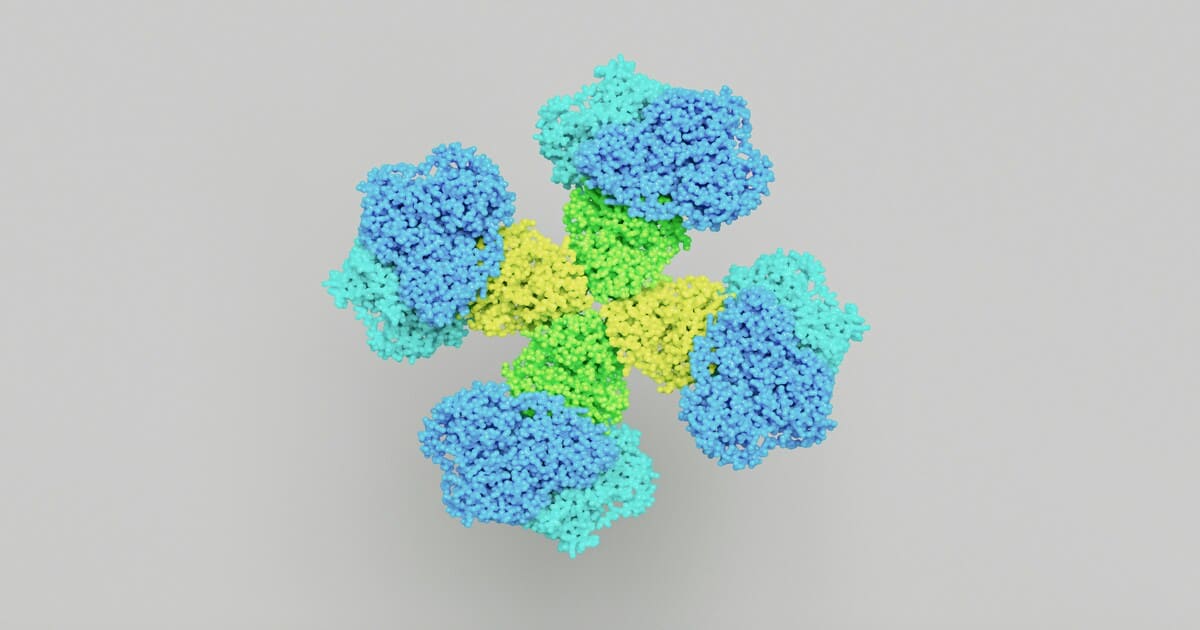Introduction
Amino acids are the building blocks of life. Every protein in your body—whether in muscles, organs, skin, hair, or enzymes—is made up of amino acids. They are vital for nearly every biological process, from repairing tissue and building muscle to producing hormones and neurotransmitters. Without adequate amino acids, your body cannot function optimally.
Doctorhub360.com amino acids guides provide in-depth knowledge about these essential nutrients. Understanding amino acids can help you make informed decisions about your diet, supplementation, and overall wellness. In this guide, we will explore the different types of amino acids, their health benefits, food sources, supplementation options, and why Doctorhub360.com is a trusted resource for amino acid information.
What Are Amino Acids?
Amino acids are naturally occurring organic compounds that play a critical role in human health by forming the building blocks of proteins. Proteins themselves are essential macronutrients required for almost every physiological process in the body, from tissue repair and enzyme activity to hormone production and immune defense. Proteins contribute to the structure, function, and regulation of the body’s cells, tissues, and organs, making amino acids indispensable to maintaining optimal health.
There are 20 standard amino acids, which are divided into three major categories based on whether the body can produce them or must obtain them from dietary sources. Essential amino acids (EAAs) cannot be synthesized by the human body and must be obtained through the diet. These include histidine, isoleucine, leucine, lysine, methionine, phenylalanine, threonine, tryptophan, and valine. In contrast, non-essential amino acids are naturally produced by the body, including alanine, asparagine, aspartic acid, and glutamic acid. Lastly, conditionally essential amino acids are typically non-essential under normal circumstances but become crucial under stress, illness, or trauma. These include arginine, cysteine, glutamine, tyrosine, and proline.
Beyond their role in protein synthesis, amino acids are vital for the production of hormones, neurotransmitters, and enzymes. They regulate numerous biochemical pathways, including energy metabolism, immune responses, and nervous system signaling. Without a proper balance of amino acids, the body can experience fatigue, slower recovery from injuries, weakened immunity, and disruptions in mood or cognitive function.
Why Amino Acids Are Important
Amino acids are not merely components of proteins; they are the foundation of life itself. Their importance extends to multiple aspects of human health:
Muscle Repair and Growth: Amino acids are crucial for repairing and building muscle tissue, particularly after physical activity. They stimulate protein synthesis, a process in which new proteins are formed to replace damaged ones, allowing muscles to grow stronger over time. Athletes and fitness enthusiasts rely on adequate amino acid intake to enhance recovery and prevent muscle breakdown.
Immune Function: Certain amino acids, such as glutamine and arginine, play essential roles in maintaining a healthy immune system. Glutamine provides fuel for immune cells, while arginine contributes to nitric oxide production, which supports immune defense and helps the body combat infections effectively.
Cognitive Health: Amino acids act as precursors for neurotransmitters, the chemical messengers that regulate mood, memory, and focus. For example, tryptophan is converted into serotonin, which stabilizes mood and promotes restful sleep. Tyrosine is transformed into dopamine and norepinephrine, neurotransmitters that support alertness, attention, and stress management.
Metabolism and Energy Production: Amino acids are involved in energy production, nutrient metabolism, and hormonal regulation. They help the body efficiently utilize fats, carbohydrates, and proteins, ensuring sustained energy levels throughout the day.
Skin, Hair, and Nail Health: Amino acids are necessary for the formation of collagen and keratin, the proteins that give skin elasticity, hair strength, and nail integrity. Adequate intake helps maintain youthful, healthy-looking skin, reduces signs of aging, and supports the growth of strong hair and nails.
Without sufficient amino acids, the body can experience fatigue, slower wound healing, reduced muscle strength, impaired immunity, and cognitive challenges.
Types of Amino Acids and Their Functions
1. Essential Amino Acids (EAAs)
Essential amino acids cannot be produced internally and must be obtained from dietary sources or supplements. Each EAA has specific roles in maintaining health:
- Leucine: Stimulates muscle protein synthesis, promotes muscle repair, and prevents muscle breakdown during exercise.
- Isoleucine: Supports energy production and enhances muscle recovery by regulating blood sugar levels.
- Valine: Facilitates tissue repair, boosts endurance, and reduces fatigue during physical activity.
- Lysine: Essential for calcium absorption, collagen formation, and supporting immune function.
- Methionine: Contributes to metabolism and detoxification by producing compounds that neutralize toxins in the body.
- Phenylalanine: Precursor to dopamine, norepinephrine, and epinephrine, which regulate mood, alertness, and stress responses.
- Threonine: Supports protein balance, immune health, and healthy skin tissue.
- Tryptophan: Precursor to serotonin, regulating mood, sleep, and emotional well-being.
- Histidine: Important for tissue growth and repair and plays a role in hemoglobin production and immune responses.
2. Non-Essential Amino Acids
While the body can produce these amino acids, they remain critical for optimal health:
- Alanine: Converts glucose into energy during exercise and helps maintain energy levels.
- Asparagine: Supports nervous system function and cognitive processes.
- Aspartic Acid: Plays a role in energy production and neurotransmitter regulation.
- Glutamic Acid: Acts as a neurotransmitter, contributing to brain signaling and memory function.
3. Conditionally Essential Amino Acids
During periods of stress, illness, or trauma, these amino acids become essential:
- Glutamine: Strengthens immune function and supports gut health, particularly during illness or intense training.
- Arginine: Improves blood flow, aids wound healing, and supports cardiovascular health.
- Tyrosine: Enhances cognitive performance and stress management under demanding conditions.
- Proline: Necessary for collagen synthesis, which supports skin, joint, and connective tissue health.
Health Benefits of Amino Acids
1. Muscle Growth and Athletic Performance
Amino acids, especially branched-chain amino acids (BCAAs) like leucine, isoleucine, and valine, are crucial for promoting muscle protein synthesis. They not only reduce exercise-induced muscle damage but also prevent fatigue during long or intense workouts. Research has shown that BCAA supplementation before and after workouts can enhance strength, endurance, and recovery, making amino acids vital for athletes and fitness enthusiasts.
2. Immune System Support
Certain amino acids enhance the immune system’s ability to fight infections and inflammation. Glutamine, for example, serves as a primary fuel for immune cells, while arginine stimulates the production of nitric oxide, which supports immune responses. Maintaining adequate levels of these amino acids ensures that the body can respond effectively to stressors and pathogens.
3. Cognitive Health and Mood Regulation
Amino acids influence neurotransmitter synthesis, which affects cognitive function, mood, and mental performance. Tryptophan converts to serotonin, regulating mood and promoting quality sleep. Tyrosine contributes to dopamine and norepinephrine production, improving focus, attention, and mental resilience during stressful situations. Adequate amino acid intake can reduce fatigue, enhance concentration, and improve emotional well-being.
4. Skin, Hair, and Nail Health
Amino acids are essential for synthesizing collagen and keratin, structural proteins that support skin elasticity, hair strength, and nail integrity. Diets rich in amino acids help maintain hydration, improve elasticity, reduce wrinkles, and promote healthy hair growth and strong nails.
5. Weight Management and Metabolism
Amino acids regulate metabolic hormones and enzymes that influence body composition. Leucine, in particular, helps regulate blood sugar levels, supports fat loss, and preserves lean muscle mass. Amino acids also increase satiety, helping control appetite and reducing the likelihood of overeating, which supports weight management goals.
Food Sources of Amino Acids
1. Animal-Based Sources
Animal-based foods are complete protein sources, containing all essential amino acids in bioavailable forms. Common sources include:
- Meat: Beef, chicken, lamb
- Fish and Seafood: Salmon, tuna, shrimp
- Eggs: Whole eggs and egg whites
- Dairy Products: Milk, yogurt, cheese
These sources are highly digestible, ensuring efficient amino acid absorption and utilization by the body.
2. Plant-Based Sources
Vegetarians and vegans can meet amino acid needs by combining complementary plant proteins:
- Legumes: Lentils, chickpeas, black beans
- Nuts and Seeds: Almonds, sunflower seeds, pumpkin seeds
- Soy Products: Tofu, tempeh, edamame
- Whole Grains: Quinoa, brown rice, oats
Combining legumes with grains ensures a complete amino acid profile, covering all essential amino acids necessary for optimal health.
Amino Acid Supplements
In some cases, dietary intake may not provide adequate amino acids. Supplements can help fill nutritional gaps, particularly for athletes, seniors, or individuals with dietary restrictions. Popular supplements include:
- BCAA Supplements: Support muscle growth, recovery, and reduce exercise fatigue.
- Glutamine Powder: Enhances immune function and maintains gut integrity.
- Essential Amino Acid Blends: Provide a complete spectrum of EAAs for overall health and wellness.
Doctorhub360.com amino acid supplements are formulated based on scientific research, ensuring efficacy, safety, and high bioavailability. Their products are tailored to meet specific health goals, whether for muscle building, cognitive support, or overall wellness.
Why Choose Doctorhub360.com Amino Acids?
Doctorhub360.com is a trusted resource for nutritional guidance and supplementation. Their amino acid offerings are:
- Scientifically Accurate: Based on peer-reviewed research.
- High-Quality Ingredients: Sourced for purity and potency.
- Tailored to Health Goals: Designed for athletes, vegetarians, seniors, and those with specific health needs.
Additionally, Doctorhub360.com provides educational resources to help users understand amino acid functions, proper dosages, and safe supplementation practices.
Conclusion
Amino acids are essential for maintaining optimal health, supporting muscle growth, immune function, cognitive performance, and overall wellness. Incorporating amino acids through a balanced diet or high-quality supplements from Doctorhub360.com amino acids can help ensure your body functions efficiently.
Doctorhub360.com provides a trusted platform for learning about amino acids, understanding their benefits, and selecting the right supplements for your needs. Prioritizing amino acids in your diet is a simple but powerful way to enhance your health, energy, and longevity.
Frequently Asked Questions (FAQs)
1. What are the essential amino acids?
The nine essential amino acids are histidine, isoleucine, leucine, lysine, methionine, phenylalanine, threonine, tryptophan, and valine.
2. Can I get all amino acids from a vegetarian diet?
Yes, by combining plant-based proteins such as legumes, grains, nuts, and seeds, vegetarians can obtain all essential amino acids.
3. Are amino acid supplements safe?
When taken as directed, amino acid supplements are generally safe. Consult a healthcare professional before starting a new regimen.
4. How do amino acids support muscle recovery?
BCAAs and other amino acids repair muscle tissue, reduce soreness, and enhance recovery after exercise.
5. Can amino acids improve cognitive function?
Yes, amino acids such as tryptophan and tyrosine are precursors to neurotransmitters that regulate mood, focus, and brain health.
6. Can amino acids help with weight management?
Certain amino acids, like leucine, regulate blood sugar, preserve lean muscle mass, and promote satiety, aiding in weight control.
Also read: Pinhole Gum Surgery: Minimally Invasive Treatment




